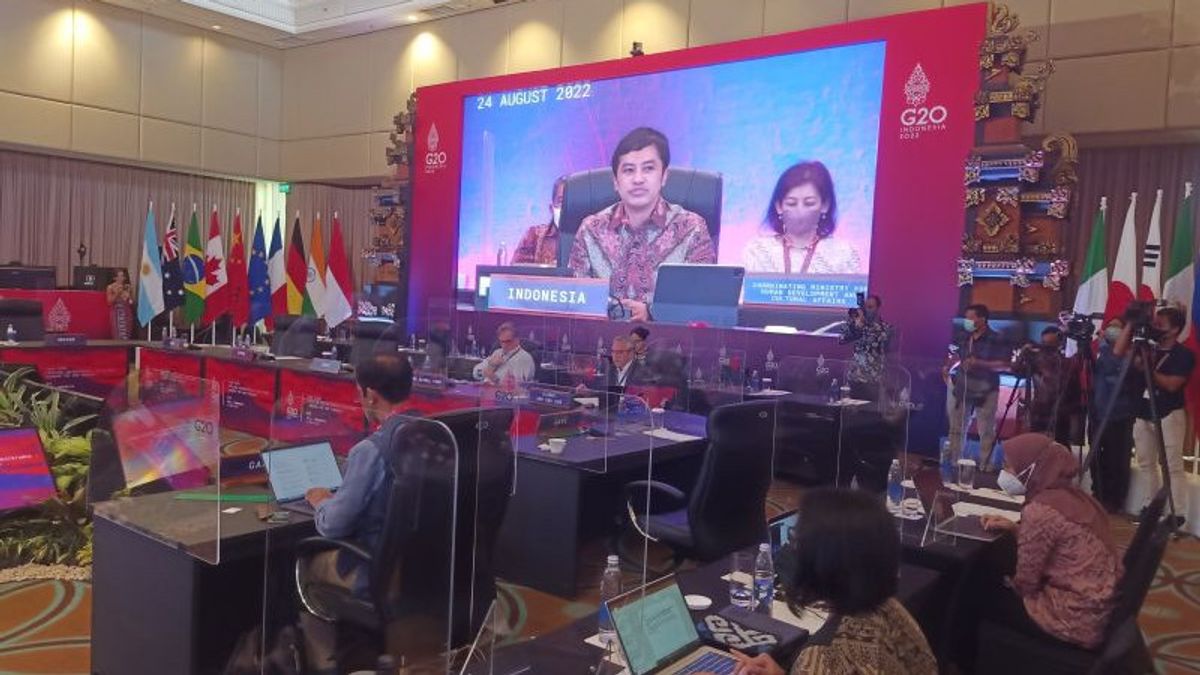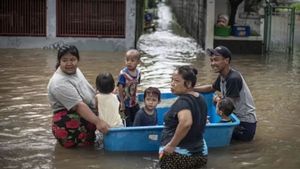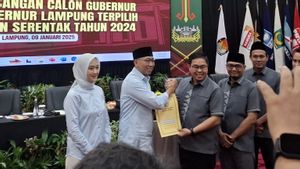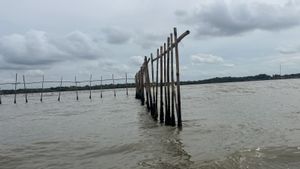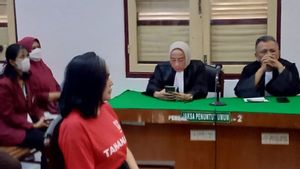BALI - The G20 meeting in Bali on August 24, 2022, revealed various astonishing reports related to the incidence in the world due to the influence of antimicrobials that no longer function to treat various diseases suffered by patients.
This incident is known as Antimicrobial Resistance (AMR), where antimicrobials in the form of antibiotics, antiviral, antifungal, antiparasitic, antituberculosis, and so on, are no longer effective in overcoming infections caused by bacteria, germs, viruses, fungi, parasites in the patient's body.
The Lancet International Scientific Journal in January 2022 stated that there were 643,381 deaths due to malaria, 700,660 deaths from breast cancer, 863,837 deaths due to HIV/AIDS, and 1.27 million deaths due to AMR.
The Ministry of Health, quoted from Antara, Sunday, August 28, called the figure a shocking report. The COVID-19 pandemic hit like a tsunami, while AMR was more devastating, like a sea tide. Silently, the prevalence of the disease continues to increase.
The method of treating patients using antibiotics began to be massive in the medical world since 70 years ago because it is known to have saved many lives, especially during World War II.
The G20 delegation at the forum in Bali believes that antibiotics in the current era have reached the point of being misused, obtained without a doctor's prescription, and often misused in humans, animals, plants, and even the environment.
The effectiveness and open access to antibiotics lead to overuse. Most people use antibiotics to prevent germs, which are not necessarily caused by germs.
Indiscriminate treatment protocols cause infections in patients to get worse, and even lead to high mortality rates because some bacteria acquire resistance to antibiotics.
The World Health Organization (WHO) classifies AMR as a serious threat that no longer predicts a future pandemic, because it has occurred in every part of the world, and has the potential to affect anyone, at any age, in any country.
The Side Event meeting in Nusa Dua Bali was attended online by the Minister of Maritime Affairs and Fisheries Sakti Wahyu Trenggono, Minister of Environment and Forestry Siti Nurbaya Bakar, Assistant Director General of WHO Anti-microbials Hannan Balkhy, experts in the field of animal health and food and agricultural organizations.
Experts estimate AMR has the potential to cause global annual Gross Domestic Product (GDP) to fall by 3.8 percent by 2050, and 28 million people live in poverty.
Director of Postgraduate YARSI University Prof. Tjandra Yoga Aditama who was a speaker at the forum reported that currently, one child in middle and small-income countries dies every three minutes due to blood infections caused by resistant bacteria.
Delegates at the meeting also calculated the risk of an additional health burden in each country of up to IDR 1 trillion due to AMR. In 2016, the Global Review estimated that no less than 10 million deaths in the world will continue to increase until 2050 if AMR is ignored.
AMR, also known as a hidden pandemic, triggers the highest number of deaths, especially in tropical areas, such as Indonesia, because not all countries have national-scale data on the impact of AMR.
WHO reveals gaps between countries in collecting AMR data. For example, the quality of diagnosis and prevention of early infection is relatively low.
WHO also encourages all countries to increase knowledge of AMR through periodic surveys to measure the rate of cases and prepare health protocols to anticipate the worst events.
Therefore, all countries and across sectors are asked to take responsibility for the challenges of AMR through a proactive attitude in reporting cases and sharing successes and failures in efforts to overcome them.
Stronger health systems are important to address AMR and ensure that antimicrobials remain effective for future generations.
G20 reaction
In 2018, WHO Southeast Asia has prepared a work plan for all countries in the form of an AMR National Action Plan through the implementation of data collection of member countries in Southeast Asia to be included in world data in the form of the Global Antimicrobial Resistance and Use Surveillance System (GLASS).
This effort is also incorporated in the Tripartite AMR Country Self-Assessment Survey (TrACSS) Program to find out how the AMR program is running, including in Indonesia.
The implementation of the World Antimicrobial Awareness Week which is held once a year is expected to be material for increasing understanding and advocacy at the world, regional, and country levels.
Indonesia as the holder of this year's G20 Presidency has outlined a strategic plan and roadmap in efforts to control the impact of antimicrobial resistance on livestock and humans.
Indonesia has enacted regulations on the use of antibiotics in the field of animal husbandry and animal health as stipulated in Law No. 18 of 2009 concerning animal husbandry and animal health which prohibits the use of antibiotics as food additives.
Indonesia also prohibits the use of Colistin in livestock whose products are for human consumption through the Decree of the Minister of Agriculture Number 9736 of 2000.
Colistin as an antibiotic drug to treat infectious diseases caused by bacteria, is the last choice for animal health or human health in Indonesia.
The increasing human population and the rampant human activities that affect environmental degradation and have a significant impact on the complexity of health threats and the development of the epidemiology of new infectious diseases in the world.
The Indonesian Ministry of Agriculture has taken a role in the "One Health" approach with all relevant parties globally and nationally in order to achieve sustainable public health and welfare.
Control of antimicrobial resistance is also mandated by Presidential Instruction Number 4 of 2019 concerning capacity building in the prevention and detection of responding to global pandemic disease outbreaks and nuclear, biological, and chemical emergencies.
Antimicrobial resistance is a serious threat to the sustainability of national health security. Hopefully the reaction of the G20 at this year's AMR Side Event Forum will reach the right formula to overcome it.
The English, Chinese, Japanese, Arabic, and French versions are automatically generated by the AI. So there may still be inaccuracies in translating, please always see Indonesian as our main language. (system supported by DigitalSiber.id)
